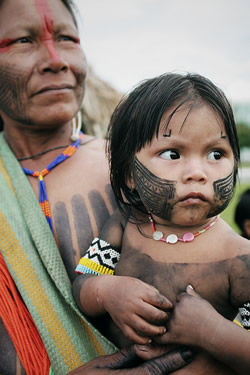International Day of the World's Indigenous Peoples
The focus of this year's celebration is "Indigenous Media, Empowering Indigenous Voices".

In the five years since the adoption of the United Nations Declaration on the Rights of Indigenous Peoples, communities and individuals have been taking advantage of the reach of traditional and new media to tell their story and make their voices heard.
The focus of this year's International Day of the World's Indigenous Peoples is "Indigenous Media, Empowering Indigenous Voices". From community radio and television to feature films and documentaries, from video art and newspapers to the internet and social media, indigenous peoples are using these powerful tools to challenge mainstream narratives, bring human rights violations to international attention and forge global solidarity. They are also developing their own media to reflect indigenous values and fight against myths and misconceptions.
Indigenous voices are recounting compelling stories of how they are combating centuries of injustice and discrimination, and advocating for the resources and rights that will preserve their cultures, languages, spirituality and traditions. They offer an alternative perspective on development models that exclude the indigenous experience. They promote the mutual respect and intercultural understanding that is a precondition for a society without poverty and prejudice.
On this International Day, I pledge the full support of the UN system to cooperate with indigenous peoples, including their media, to promote the full implementation of the Declaration. I also call on Member States and the mainstream media to create and maintain opportunities for indigenous peoples to articulate their perspectives, priorities and aspirations.
Let us use the media - indigenous and non-indigenous, and especially new outlets - to create bridges and establish a truly intercultural world, where diversity is celebrated; a world where different cultures not only coexist but value each other for their contributions and potential.
Ban Ki-moon
Secretary-General
United Nations